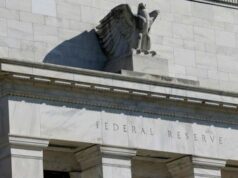Gov’t eyes samurai bond offer by 2nd half
THE Duterte government is looking to issue its first yen-denominated bonds by September or October, the Department of Finance (DoF) said.
“We will still go ahead with the samurai (bonds)… Because the Japanese calendar is different, it should be around September or October, the latter half of the (Japanese) fiscal year ending March,” Finance Secretary Carlos G. Dominguez III told reporters on Thursday.
National Treasurer Rosalia V. De Leon has said that the government is currently assessing the third currency exchange risk amid the strengthening of the dollar against the peso.
“Kasi meron siyang third currency risk, convert peso to dollar, dollar to yen. So we have to be able to manage the third currency risk,” Ms. De Leon said.
Mr. Dominguez said the plan to issue yen-denominated bonds will push through even as the Development Budget Coordination Committee (DBCC) raised its assumptions for the peso-dollar exchange rate to P50-53 this year until 2022 from P49-52 per dollar previously.
“I think our assumptions are based on solid evidence. We are planning on it, so far there is no indication on why we should not,” Mr. Dominguez said.
Aside from the samurai bonds, Deputy Treasurer Erwin D. Sta. Ana said that the Treasury bureau is also reviewing the possibility of another renminbi-denominated “panda bond” offer.
“We are continuing to study the market, and what’s happening there. The success of the last issuance… We got the tightest pricing possible,” Mr. Sta Ana said, although noting the second Panda bond offer would not be done within the year.
The Duterte administration on March 20 raised 1.46 billion renminbi fetching the low-end coupon rate of 5%, with tenders reaching a little over six times the offer size.
The government plans to borrow a total of P888.23 billion this year to plug its budget deficit that is capped at 3% of the country’s gross domestic product, or P523.7 billion.
The DBCC raised the share of foreign borrowings to 35% this year in a bid to diversify its financing base, from 26% earlier expected for this year and 20% in 2017.
The government seeks to spend about P8.4 trillion in infrastructure projects within its term in an effort to boost economic growth to 7-8% in 2022 from 6.7% recorded in 2017 and the 6.3% average logged in 2010-2015. — Elijah Joseph C. Tubayan



